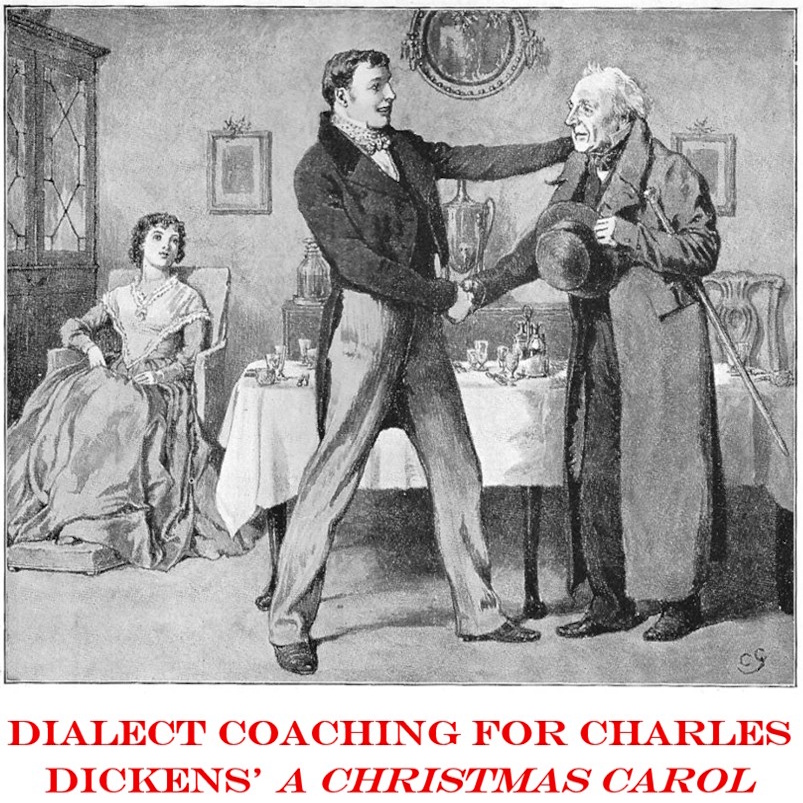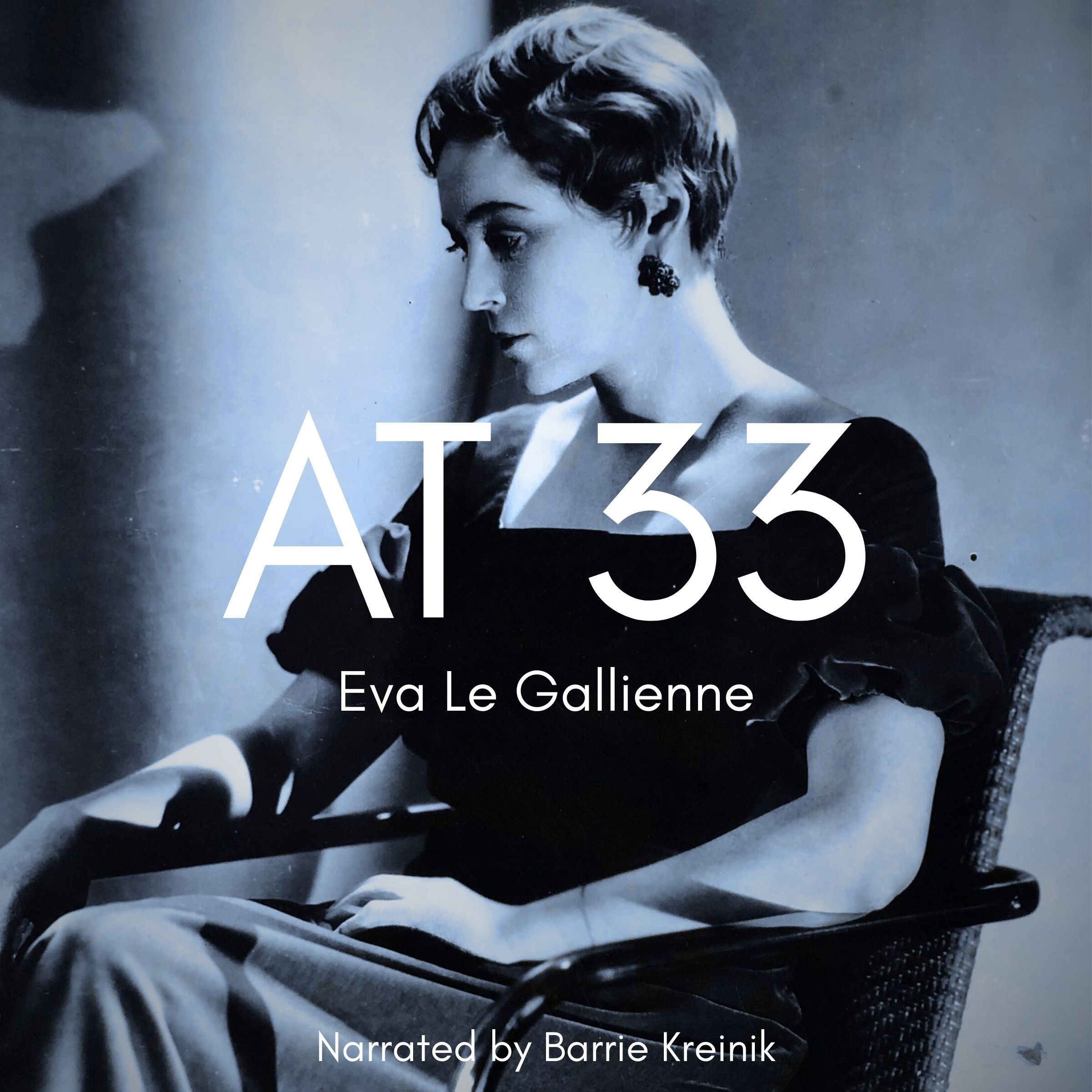Jamaica 15
Listen to Jamaica 15, a 75-year-old man from Kingston and Stirling, Jamaica, who has lived most of his adult life in England. Click or tap the triangle-shaped play button to hear the subject.
Both as a courtesy and to comply with copyright law, please remember to credit IDEA for direct or indirect use of samples. IDEA is a free resource; please consider supporting us.
BIOGRAPHICAL INFORMATION
AGE: 75
DATE OF BIRTH (DD/MM/YYYY): 02/11/1940
PLACE OF BIRTH: Stirling, St. Ann Parish, Jamaica (but raised mostly in Kingston)
GENDER: male
ETHNICITY: black Caribbean
OCCUPATION: actor, teacher, and director
EDUCATION: college
AREAS OF RESIDENCE OUTSIDE REPRESENTATIVE REGION FOR LONGER THAN SIX MONTHS:
The subject moved from his native Jamaica to England at age 20, where he has lived since, first in London for many years and then in Greater Manchester.
OTHER INFLUENCES ON SPEECH:
Chief among the early influences that the subject reports is his father’s disapproval of Patwa, insisting on “proper English” in his children. The subject also discovered a love of language and literature, and knew he was destined for a life as a performer from a very early age. His training as an actor in London involved the eradication of the last vestiges of his Jamaican accent, though, and, as his story reveals, in his later years the subject reclaimed his black Caribbean identity, and that political stance can be heard in his speech.
The text used in our recordings of scripted speech can be found by clicking here.
RECORDED BY: Paul Meier
DATE OF RECORDING (DD/MM/YYYY): 24/09/2016
PHONETIC TRANSCRIPTION OF SCRIPTED SPEECH:
[Partial transcription, through “Duke Street Tower.”]: ˈwɛɫ | ˈhɪəz ə stɔɹɪ fɔ ju | ˈsɛɹə ˈpʰɛɹɪ wəz ə ˈvɛʔn̩ɹɪ ˈnɜːs hu həd bɪn ˈwɜ˞kʰɪŋ ˈdɛɪlɪ ətʰ ən ˈʔo̜ʊɫd ˈzuː ʔɪn ə dəˈzɜtʰɪd‿dɪstɹɪktʰ əv ðə ˈtʰɛɹətɹɪ | səʊ ʃĭ wəz ˈvɛɹɪ ˈhæpʰɪ tʰə stɑ̈tʰ ə nju ˈd͡ʒɒb | ætʰ ə suˈpʰɜːb‿ˈpʰɹaɪvət̚ ˈpʰɹæk̚tʰɪs ʔɪn ˈnɔːθ ˈskwɛə nɪə ˈdjuk̚ ˈstɹitʰ ˈtʰaʊəTRANSCRIBED BY: Paul Meier
DATE OF TRANSCRIPTION (DD/MM/YYYY): 29/09/2016
ORTHOGRAPHIC TRANSCRIPTION OF UNSCRIPTED SPEECH:
I was born in Stirling in the parish of Saint Ann, which is, the, on the north coast of Jamaica, and I was born in 1940. I lived for the first eight years of my life in the country, in Stirling, with my grandmother. I have two sisters who are younger than I am, and we all three lived with my grandmother. So, um, my sisters and I for the – all our lives, really, all our lives, were brought up by our dad. Um, he moved my older sister, Faye, who is, I think, two years younger than me — he moved us to Kingston, where he worked, to live with him, and leaving my younger sister, who is, er, four years younger than me, still with my grandmother. So Faye and I were brought up in Kingston from the age of 8. Every holiday, we returned to the country, to be with my grandmother. Much of what I know about the world, how my, how my character is formed, um, my attitudes to life and living, come from my grandmother.
I was trying to remember the kinds of words I would have had at my disposal as a child, as a, growing up, growing up through that period, not just the period of eight years when I was in the country. Um, and there were several of them that really, and some I still use now, for example, I still use jingbang. Jingbang, which means good for nothing, which m– it can also mean a group of people. I still say to Estelle, “What a lotta jingbang. What a lotta jingbang out dere.” Um, or I’ll say, when my sisters and I and meet, we go back into Patwa and I’ll say, you know, “Koo ya. Look here. Koo ya. Koo ya.” Or my sister will say, “Wha yuh tink you a tak bout? Wa ya tink yuh a tak bout? Jus because yuh is Englishman now yuh tink yuh can tak like dat.” And we would just … ex … because they live in America and of course they are tinged with American in their own speech now, they hardly speak any Patwa. But I love some of these words we used as children. Fenky-fenky. Fenky fenky means somewhat sort of precious. Sort of, rather, sort of, um, puny and precious, you know. There’s a lovely word called stoshus. Stoshus. Which means high-class, you know. That person’s acting so stoshus. Is who she tink she is? She’s stoshus. Do you know? And and galang. Go on. Galang now. Or dutty. Dutty. Dutty. Dutty means ground or dirt. Dirty. I was remembering some of these words and also how we would vary the use of the Patwa. For example, somebody would say, um “A weh yuh a go? A weh yuh a go? Where are you going. A weh yuh a go.” But you would also say, “A weh yuh dah go? A weh yuh dah go?” Or, “Is where yuh goin’? Is where yuh goin?” Those three mean exactly the same thing. Where are you going? Is where yuh goin. Is where yuh a go?
TRANSCRIBED BY: Paul Meier
DATE OF TRANSCRIPTION (DD/MM/YYYY): 21/11/2013
PHONETIC TRANSCRIPTION OF UNSCRIPTED SPEECH:
[Starting at 4ː10 mark]: ɔɹaɪɫ ˈsɛɪ wɛn maɪ ˈsɪstəz ænd aɪ mit wi gəʊ bækʰ ɪntʰu ˈpʰætʰwa æn aɪɫ æn aɪɫ sɛɪ jəno ˈkuja lʊkʰ ˈhɪə˞ ˈkʰuja kʰuja ɔ maɪ sɪstə wɪl sɛɪ wa ju tʰɪŋkʰ ju a ˈtʰɑːk̚ boʊtʰ | wa ju tʰɪŋkʰ ju a ˈtʰɑːk̚ boʊtʰ | d͡ʒʌs bɪkʰɑz juɪz ˈɪŋglɪʃman noʊ ju tʰɪŋk ju kʰan tʰɑkʰ laɪk ðat | an wi wʊd͡ʃəs ɪks | bɪkʰɒz ðɛɪ lɪv ɪn əmɛɹɪkʰə n̩ əv kʰɔˑs ðɛɪ a˞ ˈtʰɪnd͡ʒd wɪð əmɛɹɪkəɹɪn ðɛə˞ ʔoʊn spit͡ʃ naʊ ðɛɪ ˈhadlɪ spikʰ ɛnɪ pʰatwa | bʌt̚ | aɪ ˈlʌv sʌm əv ðiˑz wɜ˞dz wi juz əz ˈt͡ʃɪɫdɹən | ˈfeŋkʰi ˈfeŋkʰi | ˈfɛŋkʰi ˈfɛŋkʰi minz sʌmwɒt sɔtʰ əv ˈpʰɹɛʃəsːː | sɔtʰ əv | ɹaðə sʌsɔtʰəv ɜːm | [mouth noise] ˈpʰjuːnɪ | n̩ ˈpʰɹɛʃəsː | ju nəʊ | aɪðɛəz ə ˈlʌvlɪ wɜ˞d kʰɔl ˈsːtoːʃɐs | ˈsːtoʃəs wɪt͡ʃ minz ˈhaɪ kʰlɑːs ju ˈnoʊ | ðæʔ pʰɜ˞sn̩s haktʰɪn sə ˈsːtoːʃəs ɪz ˈu ʃɪ tʰɪŋks ʃi ˈɪz | ʃɪz ˈsːtoːʃəs dju nəʊ | æn | æn gaˈlɑŋ | gəʊ ˈɒn | gaˈlɑŋ | gaˈlɑŋ noʊ | ɔ ˈdʊtʰɪ | ˈdʊtʰi | ˈdʊtʰi ˈdʊtʰi minz ˈgɹaʊnd ɔ ˈdɞtʰ | ˈdɞtʰi | awəs | ɹəˈmɛmbəɹɪŋ sʌm əv ðiz ˈwɜ˞ːdz n̩ ˈʔɔlsəʊ haʊ wi wʊd ˈvɛəɹi ðə ˈjus əv ðə ˈpʰætwa | fəɹɪgˈzɑːmpl | ˈsʌmbədɪ wʊd ˈsɛɪ | ɜm | aˈweɪ ju a ˈgo | aˈweɪ ju a ˈgo | ˈwɛəɹa ju ˈgəʊɪŋ | aˈweɪ ju a ˈgo | bʌʔ ju wʊds ˈɔlsəʊ seɪ | aˈweɪ ju ˈdaː go | aˈweɪ ju da ˈgo | ˈɔ˞ | ɪz ˈwɪə˞ jʊ ˈgoʊɪn | ɪz ˈwɛə jʊ ˈgəʊɪŋ ðəʊz θɹi min ɛgˈzækli ðə seɪm θɪŋ | ˈwɛəɹɑ ju ˈgəʊɪŋ | ˈɪz wɪə˞ ju ˈgəʊɪŋ | ɪz ˈwiə˞ ju a go ||TRANSCRIBED BY: Paul Meier
DATE OF TRANSCRIPTION (DD/MM/YYYY): 30/09/2016
SCHOLARLY COMMENTARY:
The subject, Wyllie Longmore, the well-known English actor and drama school principal, lived the first twenty years of his life in Jamaica, first in St. Ann Parish, in the country, then in Kingston from the age of 8. His working-class father was ambitious for his children and encouraged what he considered the “best English,” and that meant discouraging the use of Patwa, Jamaican creole.
When you listen to the recording, you will likely think that the subject was raised in England, and that is not only because he sailed for England on a banana boat at age 20, but because he carried with him in his luggage the prospectus for the English drama school he eventually attended, and where all remnants of his Jamaican accent were replaced with Received Pronunciation, the only style of speech considered possible for those seeking a place in the theatre profession.
If you listen to the longer interview I recorded with him, indexed as Jamaica History 1 in our Oral Histories special collection, you will hear how the subject went from complete adherence to the ideal of Received Pronunciation to a more political stance. Having known the subject when he was in his twenties, I can hear that he has re-connected with his Caribbean roots in his later years, something he addresses in the oral history. He now occasionally rhoticizes NURSE words, for example, which is the acrolectal style in Jamaica; he would have rigorously supressed this back in the 1960s and ’70s. I can also hear that the subject now has a greater embrace of the lilt of Jamaican, and to the syllable-timed rhythm of his youth.
His reminiscences of the Patwa he spoke with his sisters when they were children are of great interest. He had prepared a short glossary of Patwa words for our interview and has allowed me to publish it here.
Macka – thorn, prickle
Macka juk me inna mi han’. (I’ve been stuck in my hand with a prickle.)
Bankra – basket
Dem ‘oman deh a carry dem bankra pon dem ‘ead. (Those women are carrying their baskets on their heads.)
Facety – rude
De bway dem facety, yuh see? (Those boys are very rude.)
Duppy – ghost
Man, me no like walk anight, yu know, me ‘fraid a duppy. (I don’t like walking at night; ghosts frighten me.)
Nyam – eat
‘Im nyam so much ‘im belly bus’. (He ate so much his stomach burst.)
Who-fa – whose
A who-fa sinting dis? (Whose is this? Whose thing is this?)
Siddung – sit down
Siddung deh no? (Why don’t you sit down there?)
Fe-me/Fe-we – mine/ours
Ah fe-me seat dat./A wha we a go heat fi we dinna? (That’s my seat./What are we going to eat for dinner?)
Mawga – thin, undernourished
Dem pickney mawga you see, a wha dem mumma a feed dem? (Those children are so undernourished, what is their mother feeding them?)
Some other words:
bex: vex
boogooyagga: good-for-nothing
boonoonoonos: beautiful
bulla: small round flat cake
dung: down
dutty: dirty/ground
fenky-fenky: ordinary, puny
galang/gwan: go on
jamma: work song (my aunt forbade us to sing “jamma” on a Sunday)
jing-bang: good-for-nothing
kooyah: look here
kotch: sit on the edge
Mass: Mr., e.g.. Mass Arthur
oonoo: you (plural)
puppa/mumma: father/mother
pyaw pyaw: feeble
smaddy: somebody
stoshus: high class
tallawa: strong
wha-fe-do: what to do
whappon: what’s happening
Also, this is how the subject replied when I asked him if he had learned to write or read Patwaː
“… No, I never learnt to write in Patwa in any form as it was always an oral, rather than a written, language to me. I first met Patwa in a written form in Louise Bennett’s poems, and there she writes in a mixture of English and Patwa, as do other poets who use the form, such as James Berry and Jean ‘Binta’ Breeze. Other traditions, such as the Anancy stories or ghost stories I heard growing up, were always spoken rather that read. I was conscious of the movement to transcribe existing texts into Patwa round about the time when I was leaving Jamaica, and I think Frederick Cassidy’s book Jamaica Talk came out then. (Many years later when I was in England, I discovered a book of Jamaican song and story, collected by Walter Jekyll, first published in 1907 and re-published in 1966, in which Jekyll records the songs and stories in a form of Patwa, presumably as they were told to him.) I left the island at a time when Jamaica was moving towards independence, and there was a desire to establish what many believed to be an authentic Jamaica culture (that is, separate from Britain), which included Patwa as a language in its own right. The written form is not one I took to, when I did come across it, as I find it difficult to read. There are many words which are specific to the Jamaican dialect, but I don’t think there is necessarily a fixed way of speaking Patwa: Often it depends on the personality of the speaker, how he/she embellishes the words and phrases to make an effect. Many of the Anancy stories, for example, are written in English, but when I read them to my children, I would convert the words into Patwa as I spoke, characterizing the various animals in the stories in many different ways for maximum effect. I recognize, however, the immense value of the scholarship that lies behind the recording of Jamaican Patwa as a language in itself, and the tracing of its origins and development over centuries.”
If you are a dialect researcher, or an actor using this sample to develop your skill in a more traditional Jamaican dialect, please see my instruction manual at www.paulmeier.com.
COMMENTARY BY: Paul Meier
DATE OF COMMENTARY (DD/MM/YYYY): 28/09/2016
The archive provides:
- Recordings of accent/dialect speakers from the region you select.
- Text of the speakers’ biographical details.
- Scholarly commentary and analysis in some cases.
- In most cases, an orthographic transcription of the speakers’ unscripted speech. In a small number of cases, you will also find a narrow phonetic transcription of the sample (see Phonetic Transcriptions for a complete list). The recordings average four minutes in length and feature both the reading of one of two standard passages, and some unscripted speech. The two passages are Comma Gets a Cure (currently our standard passage) and The Rainbow Passage (used in our earliest recordings).
For instructional materials or coaching in the accents and dialects represented here, please go to Other Dialect Services.
 IDEA: International Dialects of English Archive
IDEA: International Dialects of English Archive




